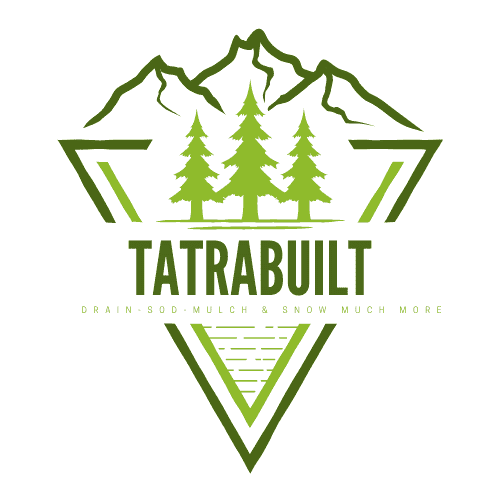More than just a springtime annoyance, when water first starts to pool around your foundation, fill your yard, or leak into your basement, it’s a sign that your house needs a better drainage system. The good news is that there are specialized methods for handling water and long-term home security thanks to modern technology, such as the French drain system.
As Michigan homes continue to battle excess rain and poor yard runoff, Professional French Drain Installation has been among the most tried-and-true, tried-and-true methods of pushing water off your land—where it should be.
Choosing the Right French Drain System for Your Property
Not all French drain systems are created equal. The most common types include:
- Shallow French Drains: Specially for lawns or garden beds during less water issues.
- Deep French Drains: Closely located to the footing of your home’s foundation, these are meant to stop basement flooding.
- Interior French Drains: Put in place inside the basement perimeter when outside work is too invasive or expensive.
- Curtain Drains: Installed uphill of a wet area to intercept water before it reaches your home or garden.
Professional installers tailor the type of system to your property’s unique layout, grading, and moisture issues. The right system ensures that water is collected efficiently and moved away without compromising the surrounding soil or foundation.
Depth, Length, and Terrain: What Impacts Your Drain Design?
Installing a French drain isn’t a one-size-fits-all deal. Several variables affect how deep or how long the system has to be, such as the slope of your property, soil type, and water table height.
Most home systems are placed at a depth of 18 to 24 inches. In cases of more severe water infiltration or foundation-level problems, the drain might have to be deeper. In terms of length, it depends on how much area you need to drain—front yards, backyards, or full perimeter systems.
Soil composition is a big deal, too. Sandy soils drain faster and may require less aggressive systems, while heavy clay soils common in Michigan hold water longer and demand more robust solutions. A good drainage contractor will test and assess all of these factors before installing the system.
The Lasting Benefits of a Professional French Drain Installation
Once installed, a French drain quietly does its job behind the scenes, offering several clear advantages:
- Shields your foundation from hydrostatic pressure that creates cracking and leaks.
- Eliminates standing water, so your yard is still usable even after a heavy rain..
- Prevents basement flooding, a common concern in older Michigan homes.
- Improves soil health and prevents plant root rot by keeping excess moisture away.
- Boosts property value, as buyers appreciate homes with preventative infrastructure in place.
- Perhaps best of all, these systems require little maintenance.
Why Are French Drains More Expensive Than Other Drainage Systems?
Compared to other drains or dry wells, French drains are more expensive—but for good reason. They require trenching, specialized piping, gravel backfill, and proper slope calculations. Add to that labor, materials, and site-specific adjustments, and the price reflects the complexity of the solution.
What you get, however, is a long-lasting fix. Surface drains can clog easily or get overwhelmed during heavy storms. French drains, by contrast, are built to manage water across a larger area with minimal upkeep. Over time, they save money by preventing structural repairs and water damage restoration costs.
How Long Does a French Drain Last?
A well-installed French drain will last anywhere from 30 to 40 years, and frequently even longer with little maintenance. That durability is one of its greatest strengths—particularly when installed with good materials and the proper slope for water flow.
Routine care may include occasional flushing or checking for blockages in the pipe, but overall, these systems are designed to be set-and-forget. That makes them an excellent choice for busy homeowners who want peace of mind without constant yard work or repairs.
Precision and Protection from Michigan’s Drainage Experts
If you’re seeing puddles where they shouldn’t be, damp spots along your basement walls, or constant sogginess in your yard—it’s time to think about a real solution. French drains offer more than water management—we offer property protection, longevity, and day-to-day peace of mind.
At Tatrabuilt, we specialize in Professional French Drain Installation that’s tailored to Michigan’s unique soil, climate, and terrain. Our experienced team handles everything—from evaluating your drainage problems to designing and installing systems that work invisibly but effectively.
Don’t wait for the next storm to test your yard. Get ahead of water damage and reclaim your landscape with precision drainage solutions designed to last.



